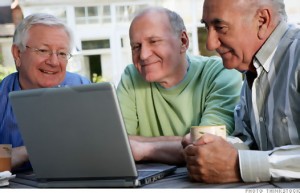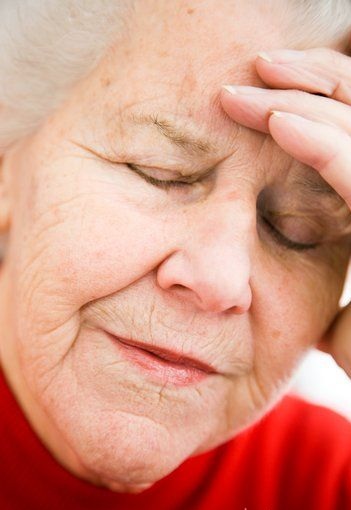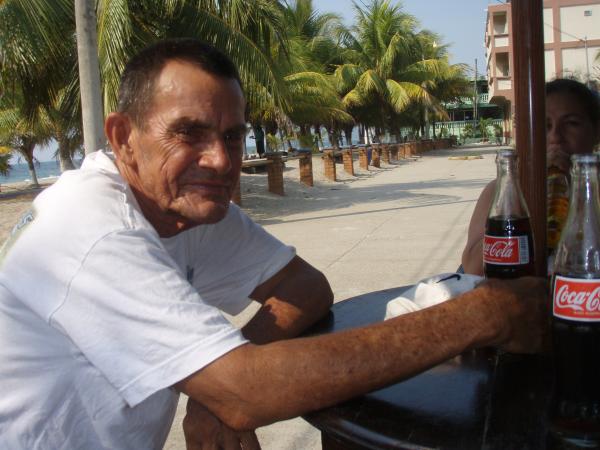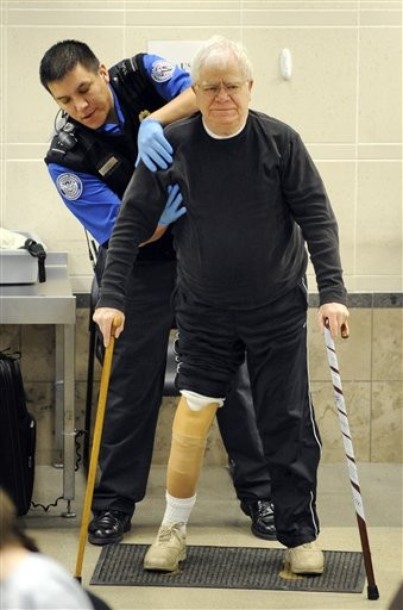Air travel security is already difficult in today’s troubled times — but it gets exponentially worse when you are older or have medical conditions. Luckily, there are things you can do to be better prepared as a senior, or caregiver to someone with extra medical challenges. Problems can be as simple as struggling to make the long airport walk, or the traveler’s belongings aren’t organized with security in mind, colostomy supplies, or if the traveler’s body contains some metal that will beep.
Here are several tips I learned after speaking with a few passengers that have these challenges, and some tips from TSA too. I am keeping these in mind for taking my 77 yr. old father on an international trip next year.
1. Drop them off first — Save yourself 30 minutes by dropping them off where taxis drop off passengers. Find them a seat and let them wait for you while you park and get back to them. Some parking garages are rather large and will take MUCH longer to navigate with someone with mobility challenges.
TIP: Make sure you know where you dropped them and don’t forget it.
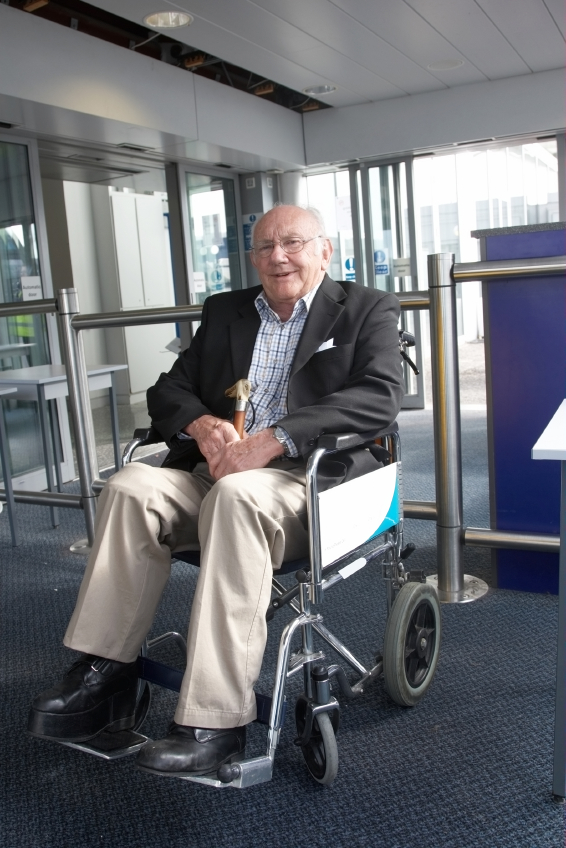
Security Tips to make it easier for the elderly at the airport
2. Get A Pass — Airport security normally doesn’t allow anyone but departing passengers with a flight boarding pass to go to the gate. There are exceptions, if a passenger needs extra help (like caring oxygen equipment, etc.) you can often go along. Remember, the departure gate person must type up and print this pass, and it will take extra time. Bring your ID and passport if you have one to make it easier on them.
TIP: Request a gate pass right as you check-in; it will save time later.
3. Hitch A Ride — My dad can stand and walk, but even with a rollator it quickly gets painful. Getting from the airline’s check-in desk to the security checkpoint would be to much for him. It is easier on him and everyone around him if he can do it in a wheelchair. TIP: Request a wheelchair or cart ride in advance (even online), and again when you get to the check-in counter.
4. Don’t Stop Asking — Getting a ride isn’t a right. Some airlines let you request a wheelchair when you purchase the tickets, and this typically should alert the agent when you check in. Remember that you aren’t the only person that needs limited equipment. They might not have any available wheelchairs when you get there. Plan for this and give yourself ample time.
TIP: Be patient and if you have waited 8-10 minutes without help, ask again politely.
4. Pay extra care with your wheelchair — We know that security lines are not consistent widths and can weave around everywhere. Be prepared to annoy people behind you when adjusting the gates to accommodate the wheelchair. Security Officers will inspect your wheelchair or scooter. These inspections will be conducted while you remain in your wheelchair or on your scooter if you indicate that you cannot get out of your wheelchair or off your scooter.
TIP: Let the security officer know in advance what you can or can’t do, and if you want a private screening or not.
5. Remove NON-required metal pieces — If you have a metal rod in your spine… DON’T take it out. But go ahead and wear pants with elastic that STAY on when you remove your belt. Get rid of all that change in your pocket in advance and remove those pens and cellphone. Wear sandals if you can too, makes things much easier.
TIP: As soon as you checkin go ahead and remove all metal and place it in your small carry on bag that can go through the x-ray. You can survive 20-30 minutes without that change or belt on.
6. Talk To TSA — They want their job to be easy and you to get through as fast as possible. Help them by TELLING them IN ADVANCE of any special requirements, implants, needs, you may have.
TIP: If a rollator or cane gets separated from the person who needs it, ask a TSA agent to deliver it.
7. Hidden Metal Challenges — When the metal detector beeps on metal that’s not obvious, TSA is required to inspect further. TSA believes in no exception, no doctor’s letter, or sweet talk will avoid this.
TIP: Request a secondary screening in advance if you know you’re not going to slip my the metal detector without beeping.
8. Cooperate Courteously — The TSA agents don’t enjoy giving a deep pat down to anybody. Especially someone in their 80’s. Remember they are just doing their job and want to finish in a timely manner but they are going to be thorough.
TIP: Be helpful, but not demanding or discourteous. Remember your goal is to breeze through the process, not lose an argument or miss a flight.
10. Time to get to the gate — Once the agent clears you, request for a ride to your gate. Most airports have personnel driving around constantly to give rides to passengers with mobility needs.
TIP: If the traveler faces mobility and/or security challenges, get to the airport very early — 1 hour earlier than required is a safe bet.
Any other tips that we missed here? Let us know!!
This blog entry was provided by Jason Monroe. Thanks to JRS Medical for taking care of the senior community through its solid value medical supplies.
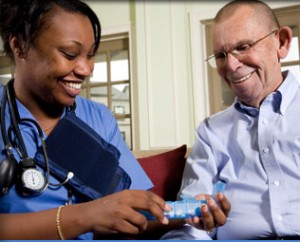 Many believe that keeping quality, caring healthcare providers at these rates will be very difficult to hold on to. Receiving care from a well educated caring individual will likely be replaced by someone just looking for that hourly paycheck.
Many believe that keeping quality, caring healthcare providers at these rates will be very difficult to hold on to. Receiving care from a well educated caring individual will likely be replaced by someone just looking for that hourly paycheck.
